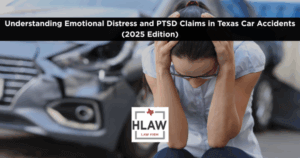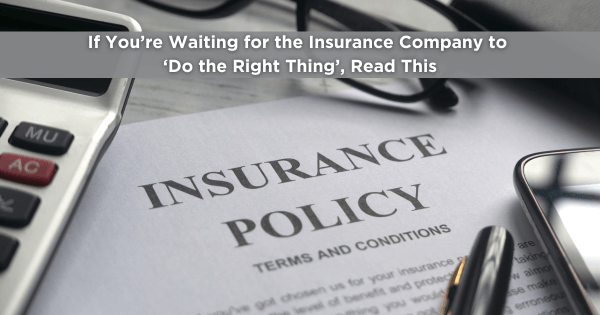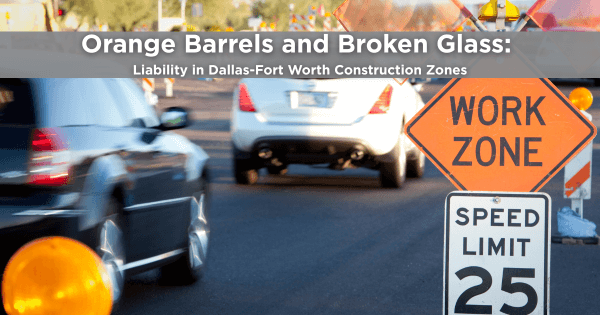The Hidden Psychological Toll of Texas Car Accidents

Emotional distress and PTSD are real injuries after Texas car accidents—know your rights under 2025 law.
Car accidents don’t just leave visible wounds. For thousands of Texans each year, the problems begin long after bones have mended and bruises faded. Psychological injuries—like post-traumatic stress disorder (PTSD), anxiety, depression, insomnia, and crippling fear—are among the most overlooked and hardest-fought elements of any personal injury claim. Yet Texas law allows victims to be compensated for these “invisible injuries,” so long as they’re properly documented and presented.
Defining Emotional Distress and PTSD Under Texas Law
What Is Emotional Distress?
In Texas, emotional distress is legally described as “mental anguish,” which the Texas Civil Practice & Remedies Code § 41.001(12) defines as “a high degree of mental pain and distress” accompanying or following a traumatic event. Unlike casual or passing sadness, real mental anguish creates a substantial disruption in a person’s routine, affecting work, relationships, and enjoyment of life.
Common symptoms include:
- PTSD
- Anxiety, panic attacks
- Major depressive disorder
- Extreme fear of riding or driving
- Nightmares and sleep disorders
- Withdrawal from social and family activities
- Physical manifestations (headaches, nausea, heart palpitations)
The Distinction Between Emotional Distress and Mental Anguish

Though the terms are often used interchangeably, Texas law differentiates them. “Emotional distress” can include everyday psychological effects like fear and stress, while “mental anguish” is more severe, involving symptoms that result in major life changes or chronic suffering.
To succeed in a mental anguish claim, it’s not enough to prove you were worried or sad. Plaintiffs must show a profound and lasting disruption to their way of life, backed by evidence.
Relevant Texas Statutes and Case Law
Statutory Authority
- Texas Civil Practice & Remedies Code § 41.001(12): Defines “mental anguish.”
- Section 16.003: Establishes the two-year statute of limitations for claims resulting from personal injury—including emotional distress.
- Section 41.003: Allows punitive damages for claims involving gross negligence or intentional harm, including severe psychological injury.
Foundational Texas Case Law
Texas courts have consistently required proof that emotional distress is genuine, severe, and sustained. Some landmark precedents include:
- Moore v. Lillebo (722 S.W.2d 683, Tex. 1986): Mental anguish damages must stem from negligent conduct directly impacting the plaintiff.
- Parkway Co. v. Woodruff (901 S.W.2d 434, Tex. 1995): Plaintiffs must show both the nature, duration, and severity of mental anguish, establishing a “substantial disruption” in life.
- Boyles v. Kerr (855 S.W.2d 593, Tex. 1993): Clarifies when mental anguish is independently compensable and the types of evidence courts require.
Who Can Recover for Emotional Distress?
The General Rule: Physical Injury Requirement
As a matter of policy, Texas law typically requires a physical injury before non-economic damages (like emotional distress) are available. However, two critical exceptions exist:
- Bystander claims: Immediate family members who witness a loved one’s catastrophic injury or death (see Freeman v. City of Pasadena, 744 S.W.2d 923, Tex. 1988).
- Intentional infliction of emotional distress: When a defendant’s conduct is extreme and outrageous (see Twyman v. Twyman, 855 S.W.2d 619, Tex. 1993).
In most routine car accident claims, some evidence of physical injury—no matter how minor—is necessary to prevail on an emotional distress claim.
Pure Emotional Harm: When the Rule is Relaxed
Where a defendant’s conduct is willfully malicious, or where a plaintiff is a close witness to a traumatic event (such as a parent seeing a child’s injury), Texas courts allow recovery even in the absence of physical harm. However, these cases are rare and face a high evidentiary threshold.
Symptoms and Diagnosis: What to Watch For

Common Psychological Injuries After Texas Car Accidents
- Post-Traumatic Stress Disorder (PTSD): Marked by flashbacks, nightmares, hyper-vigilance, emotional numbness, as diagnosed by the DSM-5 criteria.
- Anxiety and Panic Disorders: Including racing thoughts, sudden fear, avoidance behaviors, uncontrollable worry.
- Depression: Ranging from persistent sadness to loss of motivation, feelings of hopelessness, suicidal thoughts.
- Sleep Disorders: Insomnia, nightmares, frequent waking, sleep avoidance due to fear of reliving the crash.
- Phobias: Especially vehophobia (fear of driving or riding in vehicles).
- Chronic Mood Swings: Irritability, angry outbursts, withdrawal from social connections.
Why Early Detection Is Critical
Unaddressed psychological injuries rarely resolve on their own. In fact,early symptoms can easily be missed, downplayed, or misinterpreted by loved ones or medical providers. Prompt assessment by mental health professionals—psychologists, psychiatrists, licensed counselors—is crucial. Not only does this accelerate healing, it also generates documentation essential for a successful legal claim.
Proving Emotional Distress: The Texas Standard

Evidence Required
Insurance companies—and Texas courts—demand robust proof when it comes to claims for PTSD and emotional harm. Evidence includes:
- Medical records: Therapy notes, diagnoses, treatment plans
- Letters or testimony from licensed therapists or psychiatrists: Establishing a direct connection to the crash
- Prescription records: For anti-anxiety, antidepressant, or sleep medications
- Workplace records: Documenting lost time and diminished performance
- Witness statements: Observations from friends, family, coworkers
- Personal journals: Daily tracking of symptoms, emotional struggles, changes over time
- Objective proof: Missed milestones, changed routines, breakdown in relationships
- Expert testimony: Qualified mental health experts can critically support causation and prognosis.
The “Substantial Disruption” Test
Texas courts are clear: you must prove that emotional distress caused a significant, not trivial, impact on your ability to function. Passing anxiety or occasional fear is not enough. Evidence should relate to:
- Breakdown in family relationships
- Termination or suspension from work
- Inability to perform everyday responsibilities
- Need for extensive and ongoing psychological care
- Documented loss of enjoyment of life.
Specific Texas Statutory Provisions
Civil Practice & Remedies Code
Tex. Civ. Prac. & Rem. Code § 41.001(12) — “Mental Anguish” Defined
“Mental anguish means a relatively high degree of mental pain and distress that is more than mere disappointment, anger, resentment, or embarrassment, although it may include all of these, and is such that it produces a substantial disruption in the daily routine of the plaintiff.”
Tex. Civ. Prac. & Rem. Code § 41.003 — Punitive Damages
Allows for exemplary damages where gross negligence or willful conduct caused psychological or emotional suffering.
Tex. Civ. Prac. & Rem. Code § 16.003 — Statute of Limitations
Sets a two-year limitations period for filing a personal injury claim—including those for emotional and psychological harm.
Types of Damages Recoverable
Economic Damages
- Costs for therapy, counseling, psychiatric evaluation
- Prescription medication (antidepressants, anxiety meds, sleep aids)
- Lost wages due to missed work
- Reduced earning capacity (where psychological injuries are disabling)
- Anticipated future medical/mental health costs.
Non-Economic Damages
- Pain and suffering (including both physical and psychological trauma)
- Loss of enjoyment of life, hobbies, and family interaction
- Loss of consortium (impact on marriage or close relationships)
- Diminished quality of life due to chronic mental health problems
- Damages for disfigurement and the resulting psychological trauma
Punitive Damages
Awarded in claims of extreme recklessness, gross negligence, or intentional infliction of harm. These are rare but important in precedent-setting cases or when the defendant’s conduct shocks the conscience.
Common Hurdles in Psychological Injury Claims
Navigating the common obstacles in psychological injury claims.
1. Delayed Onset of Symptoms
PTSD and related psychological problems may not arise until weeks or months post-accident. This delay allows insurers to argue alternative causes or deny connection to the crash. Consistent, early documentation is crucial to linking the symptoms to the original trauma.
2. Pre-existing Conditions
If you had a history of mental health problems prior to the crash, insurers often try to “blame” your symptoms on those. Under the “eggshell plaintiff” doctrine, Texas still allows compensation for mental anguish if the accident exacerbated a pre-existing condition, but medical and legal evidence becomes even more important.
3. Lack of Objective Evidence
Unlike broken bones, psychological injuries are not easily photographed or scanned on x-rays. That’s why Texas law places a high value on reports from professionals, contemporaneous counseling records, and outside testimonials.
Steps for Building a Strong Claim

1. Early Diagnosis and Documentation
Seek prompt mental health treatment, whether via emergency counseling, therapy, or psychiatric evaluation. Ask your provider to keep detailed notes about the cause and duration of your symptoms, changes in behavior, and prognosis.
2. Maintain Comprehensive Written Records
Personal journals, symptom trackers, and appointment logs can all be admitted as evidence and help substantiate your experience. Encourage family and close friends to provide statements regarding changes noticed since the accident.
3. Engage Qualified Experts
Select a personal injury attorney well-versed in psychological and PTSD claims in Texas. Your legal team should secure testimony from medical experts who can directly link the trauma, even when symptoms are subtle or delayed.
4. Communicate All Symptoms
Be candid and thorough about nightmares, panic attacks, mood swings, and functional impacts, even if they seem minor. “Hidden” injuries form a critical part of your claim.
5. Don’t Let Insurers Minimize Real Suffering
Never accept a settlement without reviewing the true long-term costs—therapy may last years, and trauma may resurface after stressful triggers or events.
Practical Examples and Settlements
Texas verdicts and settlements for PTSD and emotional distress vary widely depending on the severity, documentation, and facts. Substantial recoveries typically occur where:
- A crash leads to lifelong disability and severe PTSD
- The victim is unable to return to work due to panic attacks or depression
- Severe psychological harm disrupts marriage, parenting, or close relationships
Vetted cases and public settlements demonstrate that sustained, well-documented emotional injuries can result in six- and even seven-figure damage awards, especially when supported by expert psychiatric testimony.
Frequently Asked Questions About Emotional Distress Claims
Can I bring a claim if I didn’t see a therapist?
You can file, but without professional documentation or evaluation, success is unlikely. Insurers and courts require medical evidence to establish both severity and causation.
What’s the difference between pain and suffering versus emotional distress?
“Pain and suffering” is a broad term covering all non-economic damages (physical and mental). “Emotional distress” focuses only on the psychological effects.
Does the type of accident matter?
Serious, multi-car, or catastrophic crashes are more likely to result in recognized mental anguish. Proof is still necessary in all cases—minor accidents with severe psychological sequelae must be well-documented.
How long do I have to file?
Under Texas Civil Practice & Remedies Code § 16.003, you have two years from the date of the accident to file suit for emotional and physical injuries.
Statutory and Legal References
- Tex. Civ. Prac. & Rem. Code § 41.001(12): Definition of mental anguish
- Tex. Civ. Prac. & Rem. Code § 41.003: Punitive damages for egregious harms
- Tex. Civ. Prac. & Rem. Code § 16.003: Statute of limitations for injury claims
Conclusion: Why Experienced Legal Guidance Matters
Partnering with an experienced attorney ensures your rights are protected. Emotional trauma is real, lasting, and compensable under Texas law for car accident victims. Successful claims require early intervention, expert diagnosis, thorough documentation, and an experienced personal injury law firm ready to fight for holistic recovery.
Victims shouldn’t let skepticism about “invisible injuries” keep them from pursuing justice. By partnering with a knowledgeable Texas personal injury attorney, you ensure your story is told—and your rights protected—both in settlement talks and, if needed, before a Texas jury.
At HLAW, our attorneys have the experience and knowledge to help you through one of life’s toughest challenges – recovering from an accident and injury that was never your fault. Victims of car wrecks don’t choose to be put in that position, but having compassionate but aggresive representation can help. Contact our office today for a free case evaluation and consultation. We’re here to help you move forward and get the justice you deserve.










